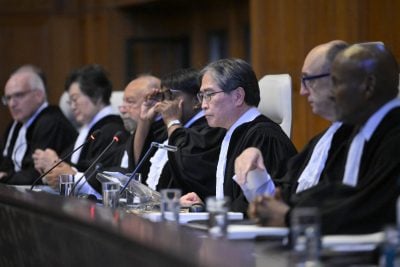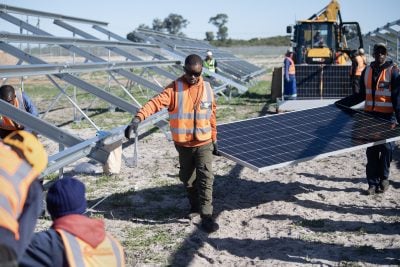Construction work has begun on the new $1.5bn container terminal at the Port of Tema in Ghana at the start of January. The terminal will be operated by Meridian Port Services (MPS), which is mainly owned by two giants of the African port sector, Bolloré Transport & Logistics and APM Terminals, plus Ghana Ports and Harbours Authority. It is scheduled for completion by the end of 2019.
The work will mainly be financed by the World Bank Group subsidiary International Finance Corporation (IFC), which has provided $667m, and MPS shareholders, who have fronted $333m. The IFC will contribute $195m out of its own reserves and has borrowed the remaining $472m from Bank of China, Dutch development finance company FMO, South Africa’s Standard Bank and Industrial and Commercial Bank of China.
The new Ghanaian government of President Nana Akufo-Addo has promised to proceed with the project, which was sanctioned by his predecessor John Dramani Mahama. The principal contractor on the project is China Harbour Engineering Company, which is developing four berths, a 1.4km quay, a breakwater, container yard and new deepwater access channel.
Triple capacity
US engineering firm AECOM is overseeing construction and providing design and procurement management services. The project will triple the port’s container handling capacity to 3m TEU, or standard sized containers, a year. This will make it the biggest container port in West Africa, much bigger than any existing port in Nigeria. MPS handled 646,000 TEU at Tema in 2015, about 80% of all containers that passed through the port.
Project manager David Hanly says that AECOM will deploy managers from around the world on the venture, who “will work with our local Ghanaian specialists, who are well qualified in project controls, contract administration, construction management and environmental management. We have a truly multinational staff, representing nine nations and five continents.”
Ultra large container ships
The berths will have a draft of 16m, allowing access for bigger vessels than any other port in the region. Tema will be able to handle vessels of up to 18,000 TEU, in comparison with 5,000 TEU at present, allowing access for what are termed ultra-large container ships (ULCS). The CEO of MPS, Mohamed Samara, said: “Bigger vessels means reduced freight charges, with significant savings and a tremendous benefit to the shipping community of Ghana.”
The CEO of the IFC, Philippe Le Houerou, commented: “This investment will have significant ripple effects on trade, economic growth, and job creation, and is an example of how private sector engagement can open doors for transformative improvements in transport infrastructure.” It is the IFC’s biggest ever infrastructural investment in Sub-Saharan Africa. The IFC highlights the project’s main benefits as “increased trade flows and improved transport links across West Africa”. A new six lane highway is also to be constructed between the port and Accra.
On a more negative note, however, it has been reported in Ghana that MPS and Ghana’s Maritime and Dockworkers’ Union (MDU) have been unable to reach an agreement on salary increases and bonuses for 2016. Talks have been ongoing for eight months but there was a brief strike on 28 December.
Transhipment role
The terminal will position Tema is the most important transhipment port anywhere on the west coast of Africa and should encourage investment in export-orientated businesses in Ghana. Speaking at the project opening ceremony in October, former Ghanian President Mahama said: “The overall economic impact of this project will translate into 400,000 jobs along the logistics chain.” The terminal will directly create 5,000 jobs.
However, Tema will have competition from other emerging deepwater ports for regional transhipment business, particularly Lomé Container Terminal in Togo, Kribi in Cameroon and Abidjan in Cote d’Ivoire. Two new ports are planned in Nigeria on greenfield sites, Badagry and Lekki, both close to Lagos, but the two projects have been delayed, partly by the downturn in the Nigerian economy.
Neil Ford
Want to continue reading? Subscribe today.
You've read all your free articles for this month! Subscribe now to enjoy full access to our content.
Digital Monthly
£8.00 / month
Receive full unlimited access to our articles, opinions, podcasts and more.
Digital Yearly
£70.00 / year
Our best value offer - save £26 and gain access to all of our digital content for an entire year!

 Sign in with Google
Sign in with Google 


